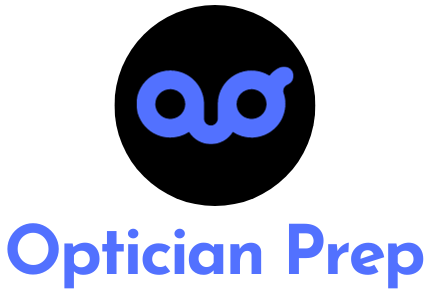Maximize your exam readiness with this expert-crafted NCLE study guide – your blueprint for success!
- Streamlined Exam Preparation: Access study materials and strategies tailored to the NCLE structure and content.
- Efficient Learning Techniques: Learn with methods that bolster comprehension and retention for the NCLE.
- Test-taking Confidence: Gain insights on navigating the exam day for the NCLE seamlessly.
Achieve your NCLE certification with confidence, guided by our focused study support.
Understanding the NCLE Exam
Embarking on the journey to excel in the National Contact Lens Examiners (NCLE) exam is a prominent milestone in your career as a contact lens technician. But what exactly does this exam involve? The NCLE exam is a comprehensive assessment designed to validate your knowledge and skills in fitting, dispensing, and ensuring the safe use of contact lenses in conjunction with eye care.
Exam Structure and Focus Areas
The NCLE exam is meticulously structured, encompassing a series of sections that cover an extensive range of topics critical to contact lens practice. Here are the focal areas you can expect:
- Anatomy of the Eye: Mastering this area ensures you understand the foundation upon which contact lens technology rests.
- Contact Lens Fitting: This is the crux of the exam, evaluating your proficiency in fitting diverse contact lens types.
- Standards and Regulations: You’ll need to familiarise yourself with the regulations that govern safe contact lens dispensing.
- Troubleshooting and Follow-Up Care: It’s essential to demonstrate your ability to address issues and maintain ongoing patient care.
Understanding the nuances within these key areas will arm you with the necessary insights to tackle the NCLE exam with confidence.
Importance of the NCLE Certification
Your success in the NCLE exam signifies more than just an achievement; it represents a commitment to excellence in the field of eye care. With certification, you are recognized as a proficient contact lens technician, instilling confidence in both your patients and colleagues.
Study Schedule and Time Management
Designing a study schedule is a pivotal strategy in preparing for the NCLE exam. Time management isn’t merely about blocking off hours in your day; it’s about crafting a plan that’s tailored to your personal learning style, pace, and life commitments.
Crafting Your Study Plan
To forge an effective study plan, consider these steps:
- Assess Your Initial Knowledge: Before diving into study materials, gauge your current understanding of each topic. This self-assessment will pinpoint the areas where you need more focus.
- Allocate Time Based on Need: If certain sections require more attention, don’t shy away from dedicating additional hours to them. Striking a balance between strengths and weaknesses is key.
- Incorporate Regular Breaks: Studies suggest that breaks can drastically improve focus and retention, so be sure to include short pauses in your study routine.
Balancing Study with Life
Maintaining a harmonious balance between studying, work, and personal life can be challenging, yet it is essential for your well-being. Here’s how to keep everything in check:
- Set Realistic Goals: Understand that some days will be more productive than others. Setting achievable daily goals can prevent burnout and keep you motivated.
- Use a Planner or App: Track your study progress and daily priorities using digital apps or traditional planners. This can help you visualize your time and manage it effectively.
- Quality over Quantity: The quality of your study time is far more important than the duration. Engage in active learning sessions where your concentration is at its peak.
Remember, your path to NCLE certification is a marathon, not a sprint. Approach your study routine with patience and resilience, and success on the NCLE exam will be within your reach.
Critical Study Tips and Techniques
Preparing for the NCLE exam means more than simply reviewing the material; it involves embracing study techniques that turn hours at your desk into a dynamic and effective learning experience. Let’s dive into strategies that can enhance your retention and comprehension, specifically tailor-made for the intricacies of the NCLE syllabus.
Leverage Active Recall
Active recall is a potent learning technique where you test your own understanding by recalling information instead of merely rereading it.
- Challenging Questions: Begin by posing questions to yourself about the material you’ve just reviewed, as if you’re the examiner.
- Flashcards: Create flashcards for key terms and concepts. Use both traditional index cards and digital tools to facilitate practice anywhere.
Utilize Spaced Repetition
Spaced repetition is a method where information is reviewed at increasing intervals to cement it in long-term memory.
- Schedule Reviews: Plan your study sessions so that you revisit each topic over days, weeks, and months.
- Technology Aid: Consider employing spaced repetition software to help you track when to review certain topics.
Mnemonics and Visualization
Creating mnemonics involves devising patterns, phrases, or visuals to help remember information.
- Acronyms and Abbreviations: Turn complex sequences or lists into simple, memorable groups of letters.
- Mind Maps: Sketch out diagrams that link concepts and details, forming a visual web of your topic knowledge.
Study in Chunks
The concept of chunking is where large amounts of information are broken down into more manageable pieces.
- Focused Segments: Split your study materials into sections that you can master one at a time.
- Contextual Learning: As you break down the information, ensure each chunk is learned within the context of how it relates to other topics.
Real-world Application
Applying concepts to real scenarios helps deepen understanding and prepares you for practical assessments.
- Case Studies: Look at past NCLE exam cases or real-world examples to see how theory is applied in practice.
- Role-playing: Simulate fitting sessions with friends or colleagues to practice your interpersonal and diagnostic skills.
Implementing these strategies into your NCLE study guide can transform your study sessions from passive reading to engaging and interactive learning experiences that are far more conducive to long-term retention.
Practice Exams and Sample Questions
The NCLE exam is as much about knowledge as it is about technique. Practice exams and sample questions serve not only to measure your readiness but also to familiarize you with the exam’s style and pacing. Incorporating these resources into your NCLE study guide is non-negotiable.
Importance of Practice Exams
Practice exams are a litmus test for your preparedness. They help in:
- Identifying Weak Areas: Pinpoint topics that require further review or different study approaches.
- Time Management: Develop an intuition for the amount of time to allocate to each question, a critical skill on exam day.
- Reducing Anxiety: The more you practice, the more comfortable you become with the exam format, reducing stress.
Finding Quality Practice Exams
Seek out practice exams that:
- Mimic Official Exams: The closer the practice test is to the actual NCLE format, the better you will understand what to expect.
- Offer Detailed Explanations: Opt for resources that provide explanations for each answer so you can learn from your mistakes.
Integrating Practice into Your Routine
Structured practice can amplify your study effectiveness:
- Regular Mock Exams: Schedule full-length, timed practice exams periodically. Simulate the test environment to acclimate to exam conditions.
- Daily Question Drills: Solve a few practice questions every day to keep your skills sharp and knowledge fresh.
Perhaps the most important aspect of using practice exams in your NCLE study guide is the post-exam review session. Go over each mistake carefully, ensuring you understand why you got it wrong and how to get it right the next time.
Exam Day Strategies
When the big day arrives, you want to ensure that all your hard work is successfully translated into a stellar exam performance. Here’s how you can make sure that exam day goes off without a hitch.
Preparing Your Mind and Body
Effective exam day strategies start well before you reach the test center. They include:
- Rest: Ensure you get a full night’s sleep before the exam to maintain alertness and reduce stress.
- Nutrition: Eat a healthy meal that’s rich in protein and complex carbohydrates to give you sustained energy.
Navigating the Test Center
Understanding the logistics of the test-taking environment is crucial:
- Arrival Time: Plan to arrive early to account for any unforeseen delays and to allow yourself time to relax.
- Required Documents: Keep your identification and admission ticket handy. Know exactly what you need to bring and what’s prohibited in the testing area.
During the Exam
Strategies for maintaining focus during the exam are essential:
- Time Management: Keep an eye on the clock, but don’t let it govern your pace. Answer questions at a steady rhythm.
- Stress Management: Stay calm. If you encounter a difficult question, move on and return to it later if time allows.
Your performance on exam day should be the culmination of your comprehensive NCLE study guide, manifesting in a calm, collected approach to the exam.
After the Exam: Next Steps
Once the NCLE exam is behind you, it’s time to look ahead. Understanding what follows the exam, be it celebrating a success or planning a retake, is the final step in your NCLE journey.
Interpreting Your Scores
Most NCLE scores are published within a few weeks post-exam. Here’s how to approach them:
- Score Report: Examine your performance in each section to understand your strengths and the areas for improvement.
- Benchmarking: Compare your score against the pass mark to determine if a retake is necessary.
Retake Policies and Feedback
In case you need another attempt:
- Retake Interval: Learn the mandatory waiting period before you can sit for the exam again.
- Feedback Utilization: Detailed performance feedback can guide your study strategy for the next attempt.
Steps Upon Passing
Celebrate if you’ve successfully passed, then:
- Certification: Follow the necessary steps to obtain your official NCLE certification.
- Further Education: Look into higher qualifications or specializations within your field to expand your expertise.
Conclusion: Your Path to NCLE Certification
Your pursuit of NCLE certification has likely introduced you to a wealth of knowledge and skills that will enrich your professional life as a contact lens technician. This comprehensive NCLE study guide is more than a blueprint for examination success – it’s a testament to your dedication to excellence in eye care.
Remember, your commitment to mastering the material, leveraging effective study strategies, understanding the nuances of the exam, and maintaining perseverance throughout the journey, is what will set you apart. Each step in this guide aids in solidifying your path to becoming a confident, NCLE-certified professional, ready to excel in your career and provide exceptional care to your patients.

